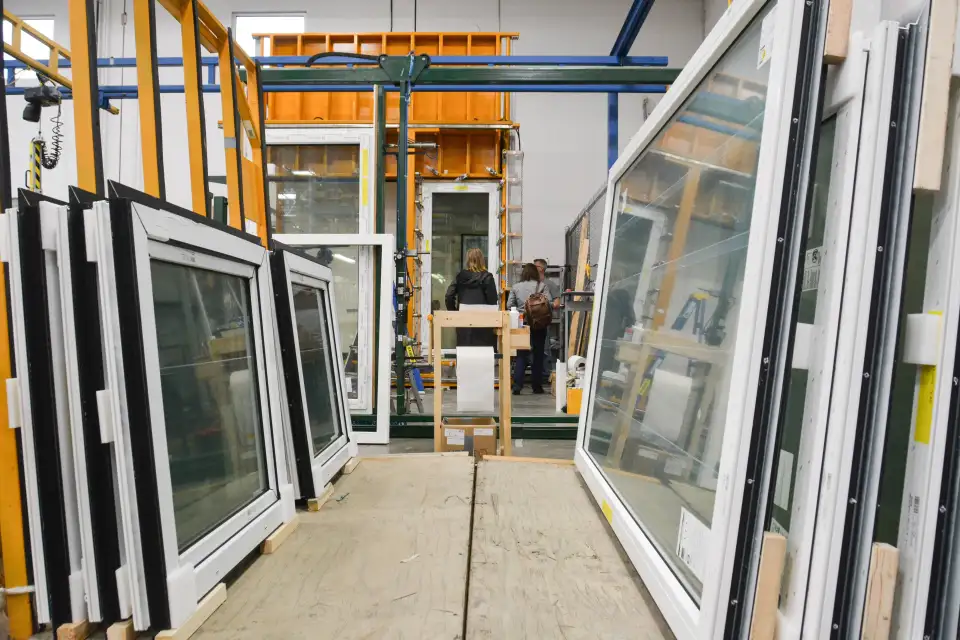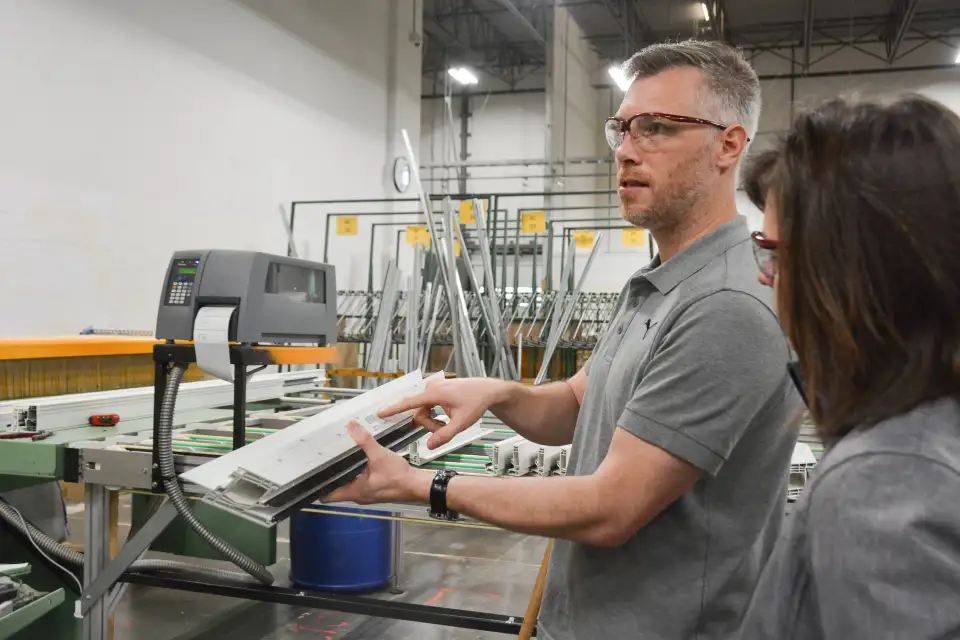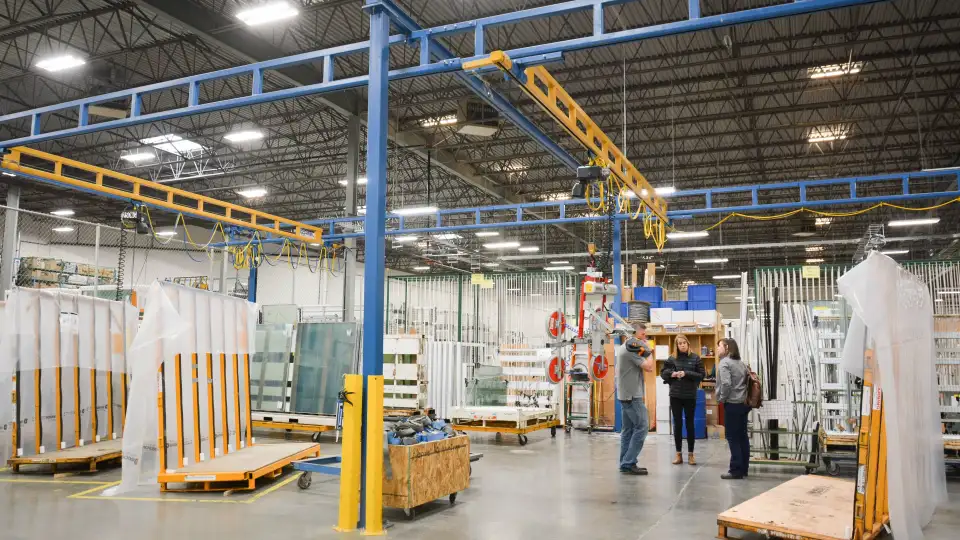
If Canada is going to meet its net zero emissions target by 2050, it needs to take some serious action, and fast. A significant and often overlooked solution is reducing the carbon footprint of existing buildings. In British Columbia (B.C.) alone, the province’s legislated climate targets would require upgrading 30,000 houses, three million square feet of commercial space, and 17,000 apartment units every year until 2050 to make them more resilient and less polluting—and these ambitious project numbers may not even be sufficient to meet the most recent sectoral targets.
Pembina Institute, a Canadian clean energy think tank, has ambitions to accelerate building retrofits that integrate carbon reduction, seismic safety, and climate adaptation, while increasing the lifespan of buildings and resident health and wellbeing, including allowing them to remain in place during construction. By investing about $21 billion annually for deep building retrofits over the next 20 years, Pembina estimates, the Canadian government can add 199,000 energy efficiency jobs and generate more than $48 billion annually in economic development, returning two to five dollars back to the public coffers for every dollar spent, while eliminating carbon pollution over the next two decades.

In partnership with the Metro Vancouver Housing Corporation, the City of Vancouver, and the BC Non-profit Housing Association, Pembina has launched the Reframed Initiative, a deep retrofit incubator based out of B.C. By bringing together public and private partners from across the housing sector, Reframed aims to prove that next-generation deep retrofit solutions can be delivered at scale and can reduce carbon pollution, improve climate and seismic resiliency, and enhance occupant health and wellbeing. For widespread upgrades to become a reality, building portfolio owners need to take new approaches to how they plan and evaluate asset renewal. Thus, the initiative’s goals also include giving building portfolio owners the tools to plan an economically viable low-carbon future for their properties.
Even before COVID-19, B.C. was in the midst of a housing crisis, and the past year has made it worse. According to the Canadian Real Estate Association, housing prices in Canada rose 22 percent on average in the last year, making affordable homes less available than ever. Recognizing the need to protect critical housing infrastructure, the Reframed Initiative, is focusing on the non-profit housing sector, providing much-needed upgrades that have the added advantage of economic development and job creation in this era of pandemic recovery.
“The inspiration came from Energiesprong, a Dutch program that’s revolutionizing retrofits by applying modern production techniques to an industry that’s as old as humanity,” says Betsy Agar, senior analyst in Pembina’s Buildings and Urban Solutions Program. “Think of it as the smart phone of retrofits, addressing multiple needs with one sleek solution by designing and using one retrofit solution that’s easily repeated, rather than customizing a bespoke solution for each building. It drives up economies of scale and drives down costs.” Reframed is one of several syndicate programs building on the Energiesprong success and adapting their learnings to local conditions and objectives.

Like Energiesprong, the Reframed Initiative is focused on the social housing sector. In B.C. there are nearly 100,000 units of social, affordable, and non-profit housing, over half of which were built before 1990 and are due for major retrofits. The cost of B.C.’s social housing sector’s deferred maintenance is expected to reach $3 billion by 2028. Many of these buildings are home to our most vulnerable populations, including the elderly and people living with chronic health conditions, such as respiratory disease.
with chronic health conditions, such as respiratory disease.
Reframed is charting a path to accelerate much needed upgrades to these decades-old buildings, starting with six deep retrofit demonstration projects in southwestern B.C. This first cohort of buildings emit a collective 490 tonnes of carbon and have utility costs reaching almost $200,000 CDN annually. Capital funding for these projects will be provided by BC Housing (a provincial agency) and Metro Vancouver Housing (a regional government housing agency). The Reframed partners continue to seek additional funding to cover the incremental costs of measures beyond those installed in a typical replacement.
To work out the retrofit details, in June 2021 Pembina set up the Reframed Lab, a collaborative design lab where multi-disciplinary design teams, each of which is working on a different low-rise multi-unit residential building, can consult with each other and experts. The Lab functions much like charettes in which the teams can jointly learn about designing to (1) mitigate climate change; (2) reduce energy waste; (3) adapt to a changing climate; (4) seismically reinforce the structures; (5) create healthier living spaces; and (6) help manage loads to reduce utility costs. Teams will also consider the factors needed to make a business case for deep retrofits that will appeal to private owners.
Building on its collaborative partnership model, Reframed is engaging industry and introducing them to the design teams through online resources and events. During the Reframed Lab, companies with new or little-known technologies will have the chance to showcase their products and services for consideration in the design. The schematic designs that emerge out of the Reframed Lab will provide the basis for a follow up design-build RFP to implement the deep retrofits, expected to start by May 2022. Construction on these pilots is expected to begin later in 2022 and conclude by August 2023.
“We’re excited to be leading this project and delighted by the interest we’ve already seen from our partners and the private sector,” says Tom-Pierre Frappé-Sénéclauze, director of Pembina’s Buildings and Urban Solutions Program. “Now that B.C. is leading the way, we need our federal government and other provinces to invest in retrofits across the housing and building sector. Not only will it kickstart new employment and projects in the construction, manufacturing, and technology sectors as we move into pandemic recovery, it’s an enormous step towards mitigating the impacts of the climate crisis.”